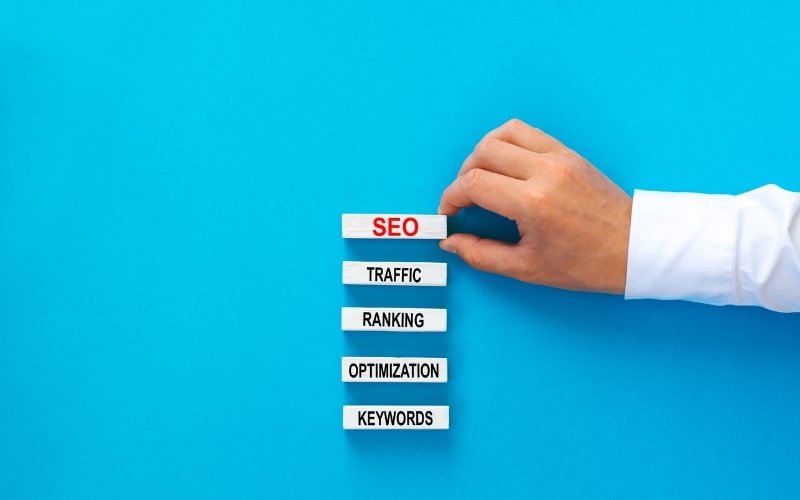SEO is one of the most crucial aspects of digital marketing, yet it’s also one of the most misunderstood. Many business owners fall victim to various SEO myths, which can lead to wasted resources, misguided strategies, and missed opportunities. In this article, we’ll debunk the top 7 SEO myths and reveal the truths that will help you create a more effective SEO strategy.
SEO is a One-Time Task

A common misconception is that SEO Myths often mislead people into thinking SEO is a one-time effort. Some business owners believe that once they’ve optimized their website, they can sit back and enjoy the long-term benefits. In reality, SEO Myths like this can lead to a lack of continuous effort, which is crucial for success. SEO is an ongoing process that requires continuous attention and adaptation.
Search engines like Google are constantly updating their algorithms, debunking SEO Myths that suggest optimization efforts remain effective indefinitely. For example, Google releases core algorithm updates several times a year. These updates can dramatically affect how websites rank in search results, even for well-optimized sites. Falling victim to SEO Myths about static strategies can result in declining rankings, allowing competitors to overtake you.
Additionally, consumer behavior is always evolving, which counters SEO Myths claiming that keyword research is a one-time task. What users search for today may not be the same as what they search for next month. SEO requires regular keyword research to ensure your site targets the most relevant and profitable keywords. Regularly updating your content, building new backlinks, and improving your website’s user experience are all essential aspects of ongoing SEO, proving that SEO Myths can be detrimental if believed.
Keywords Are All You Need
At one time, SEO was all about keyword optimization. Businesses would stuff their web pages with as many relevant keywords as possible, hoping to rank higher on search engine results pages (SERPs). This approach stemmed from common SEO Myths that keywords alone could drive results. While keywords remain important, the idea that they’re all you need is outdated and simplistic.
Modern SEO goes beyond keywords. Search engines now prioritize the overall quality of content, how well it answers a user’s query, and how it fits within the context of the searcher’s intent. Dismissing this in favor of outdated SEO Myths can result in missed opportunities to rank better. Google’s algorithms now assess factors like user experience, page load times, mobile-friendliness, and content relevance when determining rankings.
Focusing solely on keywords can hurt your SEO strategy. For example, keyword stuffing—cramming your page with keywords in an unnatural way—can lead to penalties from search engines, a practice often tied to debunked SEO Myths. Instead, your goal should be to create content that provides value to users. Believing in SEO Myths about density over quality can result in penalties rather than rewards. When your content is well-written, informative, and answers questions users are asking, search engines are more likely to rank it highly. Avoid falling for SEO Myths to ensure your strategy is effective.
Backlinks Don’t Matter Anymore
Some business owners have been led to believe that SEO Myths like “backlinks don’t matter” hold truth. This couldn’t be further from the reality. Backlinks, or links from other websites that point to your site, are still one of the most significant ranking factors in SEO. Believing in SEO Myths can often lead to missed opportunities for improving your website’s performance.
Search engines use backlinks as an indicator of your website’s authority and trustworthiness. The more high-quality backlinks your site has, the more credible it appears to search engines. However, not all backlinks are created equal. Falling for SEO Myths that promote quantity over quality can harm your site. In the past, businesses would try to manipulate their rankings by acquiring a large number of low-quality or spammy backlinks. Today, this approach can lead to severe penalties.
Quality backlinks from reputable websites in your industry are what you should aim for. These links are seen as endorsements of your content’s value. Building backlinks through strategies like guest posting, digital PR, and content outreach can significantly boost your website’s authority and rankings. Avoid being misled by SEO Myths that downplay the importance of ethical link-building practices. The key is to focus on quality over quantity and steer clear of black-hat tactics rooted in outdated SEO Myths.
Social Media Has No Impact on SEO

There’s a widespread belief that social media has no impact on SEO, but this myth ignores the indirect ways social media contributes to better search rankings. While social signals like shares, likes, and comments do not directly affect rankings, they can influence your SEO in several ways.
First, social media increases your content’s visibility, which can lead to more backlinks. When your content is shared on social platforms, it has a higher chance of being seen by industry influencers, bloggers, or journalists who may link to it from their websites. These backlinks can help improve your site’s authority and rankings.
Second, your social media profiles themselves can appear in search engine results. For instance, if someone searches for your brand, your Facebook, Twitter, or LinkedIn pages may appear alongside your website. This helps build credibility and increases your online presence.
Lastly, social media platforms can drive significant traffic to your website, increasing engagement metrics like time on site, pages per visit, and reducing bounce rates—all factors that search engines consider when ranking pages. While social media may not have a direct impact on your rankings, its role in driving traffic and building relationships is invaluable to your overall SEO strategy.
More Pages Mean Better Rankings
Some believe that the more pages a website has, the higher it will rank in search engines. While it’s true that a larger website can offer more opportunities to target different keywords, simply having more pages doesn’t automatically lead to better rankings.
Search engines focus on the quality of content, not the quantity of pages. If you’re creating multiple thin pages with little to no value just to increase your site’s size, it can actually harm your SEO efforts. Google’s algorithms favor websites that provide comprehensive, useful, and relevant information to users. Creating pages with duplicate or low-quality content could result in penalties.
Instead of focusing on producing more pages, prioritize creating high-quality, well-researched content that addresses the needs of your target audience. Each page should have a clear purpose, offer valuable insights, and be optimized for relevant keywords. High-quality content is more likely to attract backlinks, engage users, and perform better in search results, regardless of the number of pages on your site.
SEO Guarantees Instant Results

Another damaging myth is the idea that SEO can deliver instant results. Unlike paid advertising, where you can see immediate traffic boosts once your ad goes live, SEO is a long-term strategy that requires time and patience.
Depending on your industry’s competitiveness, the current state of your website, and the keywords you’re targeting, it can take months to see significant improvements in your rankings and organic traffic. SEO involves building a strong foundation, optimizing technical aspects, producing high-quality content, and earning authoritative backlinks. All of these efforts take time to show their full impact.
It’s important to set realistic expectations for your SEO efforts. Instead of looking for quick wins, focus on the bigger picture and aim for sustainable, long-term growth. SEO can bring valuable, high-converting traffic, but it’s a process that requires consistency, effort, and patience.
SEO is All About Ranking Number One
Many business owners believe that SEO success is defined solely by ranking number one on Google. While it’s true that higher rankings can lead to more traffic, SEO is not just about getting to the top spot. What’s more important is attracting relevant traffic that converts into leads or sales.
Ranking number one for a broad or irrelevant keyword may drive traffic, but if that traffic doesn’t convert, it’s not beneficial for your business. The goal should be to rank highly for keywords that are aligned with your business goals and target audience. Additionally, being featured in rich snippets, local search results, or image and video searches can bring in more targeted traffic than traditional rankings alone.
SEO should be viewed as a tool to drive relevant traffic, improve user experience, and increase conversions. Being laser-focused on just achieving the top position can lead to short-sighted strategies. A holistic SEO approach that balances rankings with engagement and conversion optimization will yield better long-term results.
Conclusion
These seven SEO myths can easily misguide your strategy if you’re not careful. By understanding the realities behind these misconceptions, you can develop a more informed, effective SEO plan. Remember that SEO is not just about quick wins—it’s about creating sustainable growth by focusing on quality content, ongoing optimization, and adapting to changes in the digital landscape.

